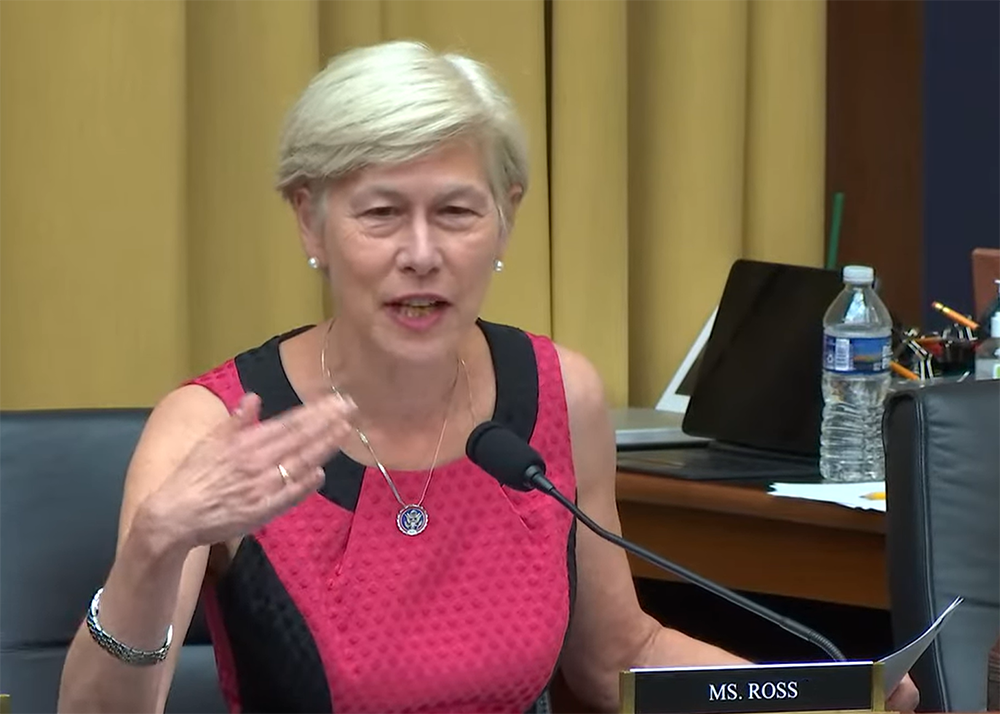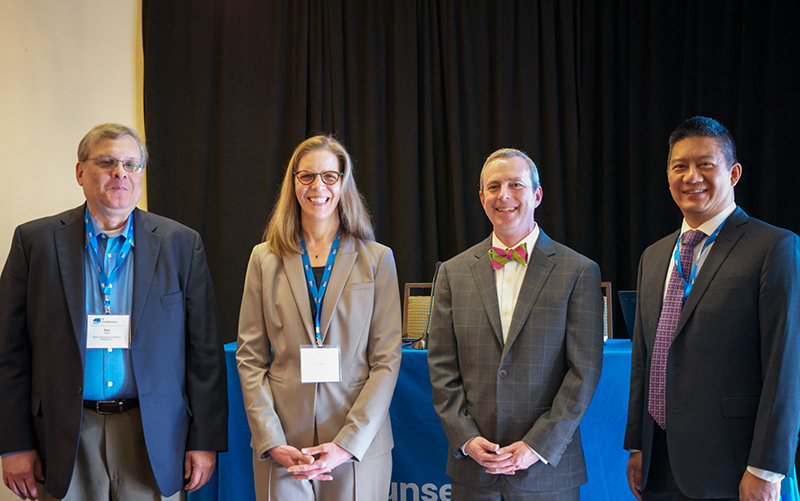Successful private efforts to share COVID-19 technology were highlighted at a June 7 conference, the day after a House hearing pointed out flaws in plans to force technology transfer by eliminating global protections for intellectual property.
The conference, in Geneva, Switzerland, and the hearing suggested strategies for the next pandemic. They also underlined the misguided thinking behind last year’s decision to waive World Organization Center TRIPS IP protections for COVID-19 vaccines. The waiver was never used, and obviously not needed, but still poses a threat to innovation, participants at both gatherings noted.
Given this experience, experts argued against a plan to extend the waiver to include COVID-19 therapeutics and diagnostics. That plan is still being considered by the Office of the U.S. Trade Representative, which asked the U.S. International Trade Commission (USITC) to investigate whether there is a need for an extension of the waiver. Their report is expected on Oct. 17.
The House hearing was informed by written testimony from the Biotechnology Innovation Organization (BIO). John Murphy, BIO’s Chief Policy Officer explained in that testimony that reducing IP did not help spread COVID-19 technology—in fact it was IP that made technology sharing possible.
“The global IP framework has enabled this lifesaving innovation and provides a reliable legal foundation for companies to voluntarily license their IP to enhance research collaborations and provide timely, equitable global access to safe and effective therapeutics,” Murphy wrote.
Voluntary partnerships worked
At the June 7 gathering in Geneva organized by the International Federation of Pharmaceutical Manufacturers and Associations (IFPMA), representatives of drug makers and others shared various models used to enable the industry’s response to the latest pandemic and discussed lessons learned for dealing with the next pandemic.
The impacts and implications of this cooperation were presented in a new report by Airfinity. According to that report:
- 44 therapeutics have been approved for COVID-19, and 1 in 18 therapeutics in clinical trials have reached the market.
- 59 vaccines have been approved for COVID-19. Around 1 in 5 vaccines in clinical trials have reached the market.
- 177 collaborations have been agreed for production and commercialization of COVID-19 treatments. There have been 374 manufacturing and supply chain announcements for COVID-19 vaccines, 71% of which involved a collaboration.
- 84 out of 93 voluntary licensing agreements for COVID-19 treatments are active – including 41 for Paxlovid, 34 for Molnupiravir and 9 for Remdesivir. Eighty of these agreements are in developing countries.
- Manufacturing partnerships for therapeutics and vaccines were signed in parallel. Most of these happened before or within days of approval.
The event also included discussion of voluntary efforts to share technology in order to ensure widespread distribution of COVID vaccines and treatments presented by representatives from MSD – Dr Reddy’s Laboratories; Gilead Sciences – Ferozsons Laboratories Limited; Johnson and Johnson – Aspen Pharma Care; Pfizer – Biovac, and AstraZeneca.
The models suggested potential strategies for dealing with future pandemics. Though the models varied widely, common themes for success were identified, including finding partners with adequate quality standards, workforce and technical ability; flexible approaches to enable optimum use of resources; and strong IP protections.
Looking to future improvements to strengthen our response to the next pandemic, conference participants said it is essential to maintain a strong innovation ecosystem underpinned by strong IP protections. They also saw the need for harmonized regulation, stronger supply chains and health care systems and removal of trade barriers.
Forced IP transfer did not work
The day before the conference, the House Judiciary Subcommittee on Courts, Intellectual Property, and the Internet held a hearing on “IP and Strategic Competition with China: Part II – Prioritizing U.S. Innovation Over Assisting Foreign Adversaries,” where lawmakers heard of the problems with a plan to waive WTO TRIPS protections for COVID therapeutics and diagnostics.
BIO’s Murphy said in his written testimony for the hearing that it was clear an IP waiver would do nothing to increase supplies of medicines while jeopardizing U.S. leadership in biotech innovation.
“According to Airfinity, governments and NGOs purchased 80 million courses of COVID-19 therapeutics in 2022 but administered only 18 million courses,” Murphy wrote. “The acute focus on IP rights by proponents of an IP waiver and their failure to focus on addressing genuine public health challenges to address the safe administration of COVID-19 therapeutics suggest that there are ulterior motives for their advocacy in support of a waiver of IP rights.”
As one witness pointed out, no country has taken advantage of the TRIPS waiver.
“No WTO member government has yet used this waiver. This suggests that the major challenges for vaccine distribution in practice have been related first to developing the ability to mass-produce vaccines, and later to distribute them safely and effectively, rather than to a problem arising from intellectual property rules,” testified Edward Gresser, Vice President and Director for Trade and Global Markets, Progressive Policy Institute.
Lawmakers at the hearing argued that IP, not waivers, promotes new therapeutics.
“The best way we can support our national public health infrastructure for future crises is by maintaining robust incentives to innovate – and that starts with strong IP protections,” said Rep. Deborah Ross (D-NC), whose district includes the Research Triangle Park
“Any expansion of the TRIPS waiver agreement will undermine the very innovation record-breaking rapid development that we saw for Covid-19,” creating a “risk to the innovation that we all enjoy here in the United States,” subcommittee Chair Darrell Issa (R-CA) warned.




